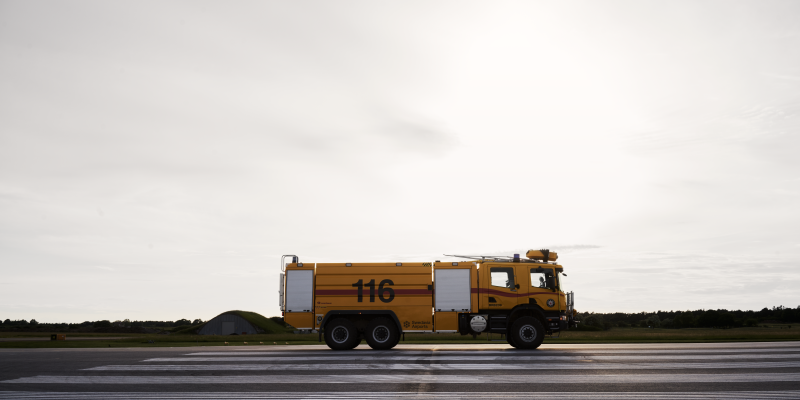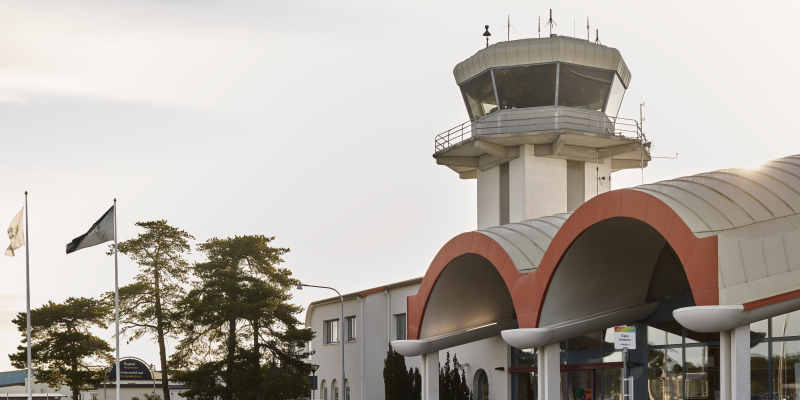Swedavia’s operations at Visby Airport now entirely fossil-free
In mid-June, Swedavia's operations at Visby Airport became entirely fossil-free. Following years of focused work, which includes electrification of its vehicles, a switch in fuels and implementation of efficiency measures, the airport has now secured its position as one of the most climate-smart in the world.
The transport systems of the future need to be sustainable. As an airport operator that aims to be an international role model in sustainability, Swedavia believes that it is vital to contribute to a sustainable transport sector and keep its own house in order. Accordingly, the company's objective is to have entirely fossil-free operations at all ten of its airports by 2020 at the latest. Visby Airport has now achieved this objective two years ahead of the deadline.
"There is a great transformation under way in the transport sector right now, with reduced fossil carbon dioxide emissions being the top priority. Visby Airport is a large enterprise that uses many vehicles and equipment as well as a lot of energy to enable air transport to and from the island of Gotland. It is a major achievement that our operations at the airport are now entirely fossil-free, and I am very proud," says Gunnar Jonasson, airport director at Visby Airport.
In ten years, fossil carbon dioxide emissions at Visby Airport have decreased from about 300 tonnes a year to zero now. Intensive work to replace all vehicles that run on fossil fuel energy – everything from fire trucks to snow removal equipment – accounts for the reduction. Energy consumption has fallen steadily, and the airport's energy is provided by green, or renewable, electricity. Swedavia also buys biofuel for its employees' travel on official business, which means that this too is fossil-free.
Another important element in Swedavia's environmental work is influencing other stakeholders in the industry and also enabling them to reduce their climate impact. Among other measures, the company is involved in work to facilitate large-scale use of biofuel in aviation. With the right measures, Swedish domestic air transport can be fossil-free by as early as 2030, while the country's international air transport – and thus all Swedish air transport – can be fossil-free by 2045.


